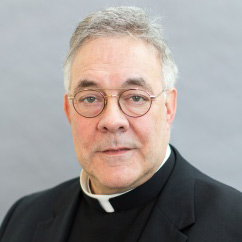LifeSiteNews.com recently asked me to comment on statements made by Ettore Gotti Tedeschi, president of the Vatican bank, about the economic effects of demographic decline in Western industrialized countries. Tedeschi told the Zenit news service that the “true cause” of the financial crisis is the low birth rate in these countries.
“Instead of stimulating families and society to again believe in the future and have children […] we have stopped having children and have created a situation, a negative economic context decrease,” Gotti Tedeschi observed. “And decrease means greater austerity.”
“With the decline in births,” he explained, “there are fewer young people that productively enter the working world. And there are many more elderly people that leave the system of production and become a cost for the collective.
“In practice the fixed costs of this economic and social structure increase. How dramatically they increase depends on how evidently unbalanced the structure of the population is and how much wealth it has. The fixed costs however increase: The costs of health increase and the social costs increase.”
This is from reporter Peter J. Smith’s article on LifeSiteNews.com:
Sirico explained that the Vatican economist’s view opposes that of population control groups, who subscribe to a different vision of economic activity: what he called a Marxist or “redistributivist” paradigm: “If there is a pie and there are more people added to the pie then there is more poverty.” But the reality, Sirico says is that “the pie is dynamic.”
“Mr. Tedeschi is saying is that: no, the human person is himself creative. Human beings are not mouths that consume, but minds that produce,” he said. Sirico added that John Paul II hit on this very point in his social encyclical Centesimus Annus, when he wrote that “Man is man’s greatest resource.”
Because human beings are also creative producers, the excess of what they produce becomes the basis for trade in the economy, and the creation of wealth, said Sirico. Contrary to population controllers obsessed with overpopulation, he noted, it is incredibly population dense cities like Tokyo and Hong Kong that are incredibly rich, while sparsely populated areas of the globe such as Angola are comparatively very poor.
Read “President of the Vatican Bank: Zero Population Growth Responsible for World-wide Recession” on LifeSiteNews.com

